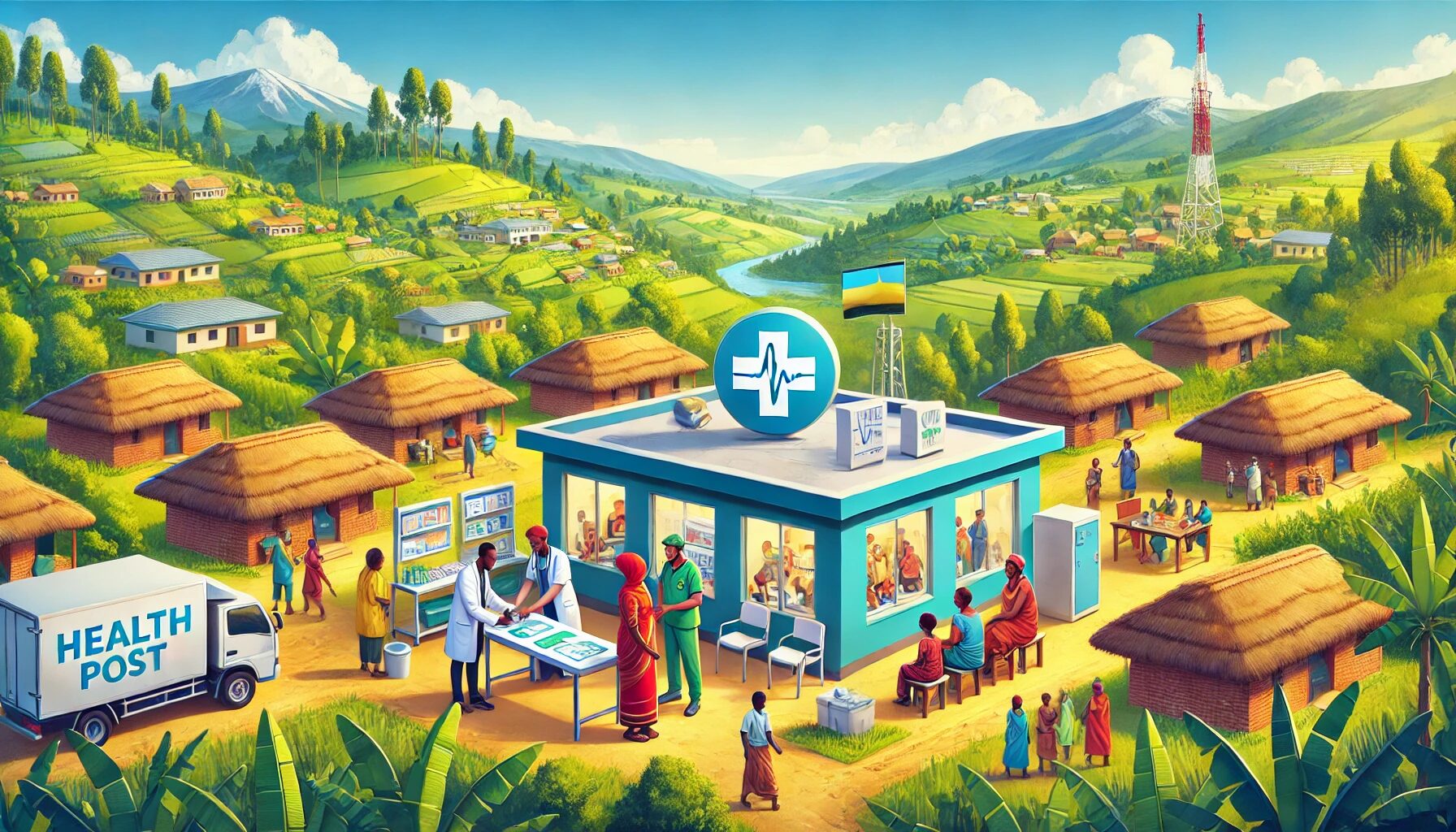Rwanda has made remarkable strides in healthcare delivery, transforming its health system into one of the most efficient and equitable in Africa. The government’s innovative policies and investments have significantly improved access to care, especially in rural areas. However, as Rwanda aspires to achieve universal health coverage (UHC), challenges remain. Addressing these hurdles with practical solutions will be critical in ensuring healthcare access for all.
This article examines Rwanda’s achievements while identifying key challenges and actionable solutions to improve healthcare delivery further.
Healthcare Achievements: Setting the Foundation for UHC
Rwanda’s health sector has achieved numerous milestones that serve as a foundation for addressing its ongoing challenges:
Decentralized Health System: Rwanda operates 1,280 health posts, 520 health centers, 57 hospitals, and 5 national referral hospitals, ensuring comprehensive geographic coverage.
Community-Based Health Insurance (Mutuelle de Santé): Over 86% of Rwandans are insured under this scheme, which has increased healthcare affordability for the majority.
Life-Saving Reductions: Infant Mortality was reduced by over 60% due to child health initiatives. Maternal Mortality dropped from 1,071 per 100,000 live births in 2000 to 210 in 2015, reflecting improvements in maternal care.
Resilient Pandemic Response: Rwanda’s response to COVID-19 and preparedness during the Marburg virus scare highlighted its robust public health capabilities.
While these achievements are commendable, Rwanda continues to face systemic and structural challenges that hinder equitable access to healthcare.
Challenges Facing Rwanda’s Healthcare Access
1. Geographical Barriers
Rwanda’s hilly terrain and rural population pose significant challenges to healthcare access. For many, long distances to health facilities remain a deterrent, especially in emergencies.
2. Workforce Shortages
Despite having nearly 28,000 healthcare professionals, including nurses, midwives, and doctors, the workforce remains insufficient to meet the growing demand, particularly in rural areas.
3. Financial Constraints
Although Mutuelle de Santé has expanded healthcare access, some households struggle to pay premiums. Additionally, gaps in coverage for specialized services and essential medicines lead to out-of-pocket expenses, disproportionately affecting low-income families.
4. Inadequate Health Infrastructure
Rural health centers often lack modern equipment and facilities needed for comprehensive care, such as diagnostic tools and specialized treatment units.
5. Health Literacy Gaps
Low health literacy in remote areas results in delayed care-seeking and poor adoption of preventive measures. Misconceptions about diseases and treatments further exacerbate the issue.
6. Pandemic Preparedness and Response Gaps
While Rwanda excelled in managing COVID-19, challenges such as limited testing resources in rural areas and reliance on external support for medical supplies revealed vulnerabilities in the health system.
Solutions: Bridging the Gaps
Rwanda’s healthcare journey provides a roadmap for addressing persistent challenges through innovative and scalable solutions:
1. Bridging Geographical Barriers
Expanding Infrastructure: Build more health posts and deploy mobile clinics to bring services closer to rural communities.
Improving Roads and Transportation: Investments in rural road networks can facilitate faster access to healthcare facilities, particularly in emergencies.
2. Strengthening the Workforce
Training and Incentives: Expand training programs for healthcare professionals and offer incentives such as housing, competitive pay, and career growth opportunities to attract talent to rural areas.
Technology for Education: Use e-learning platforms and international collaborations to enhance continuous professional development.
3. Enhancing Financial Accessibility
Tiered CBHI Premiums: Introduce income-based premium structures to make Mutuelle de Santé more affordable for vulnerable populations.
Broaden Insurance Coverage: Expand coverage to include more specialized services and essential medicines, reducing the financial burden on households.
4. Modernizing Health Infrastructure
Upgrade Rural Health Centers: Equip facilities with modern diagnostic tools, surgical equipment, and telemedicine capabilities to improve care quality.
Public-Private Partnerships: Collaborate with private healthcare providers to supplement public services and enhance infrastructure.
5. Promoting Health Education
Community Outreach Programs: Train community health workers to educate residents on preventive care, early disease detection, and the importance of timely care-seeking.
Media Campaigns: Utilize radio, TV, and social media platforms to amplify health education messages and dispel misconceptions.
6. Strengthening Pandemic Preparedness
Stockpile Medical Supplies: Build reserves of essential supplies, such as PPE and testing kits, to ensure readiness for future pandemics.
Integrated Digital Health Systems: Use technology for real-time disease surveillance and rapid response coordination.
Regional Collaboration: Strengthen partnerships with neighboring countries for cross-border disease monitoring and containment.
Rwanda’s healthcare achievements are a testament to its vision, leadership, and community-focused approach. However, the path to universal health coverage requires addressing persistent challenges head-on. By investing in infrastructure, strengthening the healthcare workforce, leveraging technology, and promoting financial accessibility, Rwanda can overcome barriers to equitable healthcare access.
The resilience demonstrated during the COVID-19 pandemic and Marburg virus preparedness serves as a beacon of hope, highlighting the country’s potential to tackle future challenges. Through a collective effort involving government, communities, and international partners, Rwanda is well on its way to becoming a global model for healthcare access and equity.
Author: T Ben Sano
T Ben Sano is a versatile content creator, blogger, and social media enthusiast based in Kigali, Rwanda. Passionate about storytelling, T Ben creates engaging content that connects with audiences across digital platforms. With a strong focus on travel, lifestyle, and culture, T Ben crafts valuable and inspiring blog posts, videos, and social media updates. Always exploring new trends and creative ideas, T Ben's work fosters community engagement and drives growth for businesses and brands. Reach out to collaborate or explore innovative digital solutions together.






